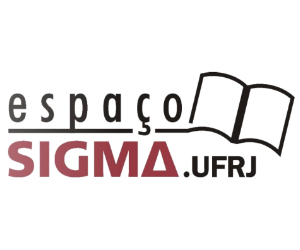PPGHIS has established new norms for accreditation, de-creditation and evaluation of faculty in late 2017, and these norms are periodically reviewed. The current process emphasizes the role of the Academic Evaluation Committee, which works in consultation with the Programa Coordinator, although with large autonomy.
Accreditation of new members of the faculty is a process that takes place in stages. The Program announces the interest in accrediting new professors, according to its strategic planning. There is no specific date for the accreditation of faculty, which can happen at any time that the Program’s Deliberative Commission so decides.
Those interested in accreditation with the Program must submit their application to the Academic Committee, and attach the documents listed on the side.
Based on the evaluation of the application, the Commission issues a report to be voted on by the collegiate of the program, with the assessment of the following points: trajectory, past production and perspective of future production, academic insertion, and adequacy to the strategic planning of the Program. The report also includes the Commission’s recommendation for the accreditation of the applicant or not. When there is a recommendation is positive, the Commission also indicates if the applicant should be included in the Program as permanent faculty or a collaborating member. In possession of the report, the coordination submits it to the appreciation by the collegiate body. It is up to the collegiate body to approve, disapprove or modify the recommendation.
Collaborating professors have the same rights and duties as permanent faculty, save regarding advising requirements, which is limited to 2 (two) master’s and 1 (one) doctorate student. They are also required to teach one course every three years.
Evaluation and De-creditation
Faculty evaluation takes place through individual meetings in the months of November and December. These activities are carried out by the Academic Evaluation Committee, in conjunction with the Program’s coordination, based on the questionnaires answered by the professors for the annual evaluation of the Program.
The productivity parameters of permanent faculty are defined according to the rigor expected for an excellence program, but they are not simply quantitative – although they do fit the metrics established by the CAPES History Area. Permanent faculty must demonstrate effective academic production in top-ranked journals and similar publications, activities of social insertion, internationalization, nucleation, and an active research agenda, in addition to advising and teaching functions. The Program also expects permanent and collaborating faculty to have active participation in the management of the Program, through its commissions.
The Academic Evaluation Committee, together with the Program’s coordination, assesses these interviews individually, to consider the contributions of each professor, as well as comparatively, to grasp the collective performance of the program.
Required Documents
- research project,
- Lattes CV,
- an inquiry letter, which must include:
- the reasons to apply and how the applicant fits in the Program
- the applicant’s research groups and networks, domestic and international;
- estimative of the applicant’s publication for the following 2 years, including the year in which s/he is applying.








